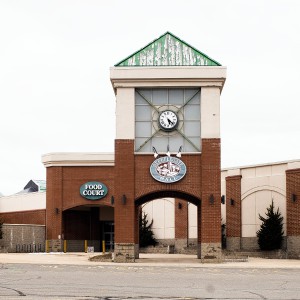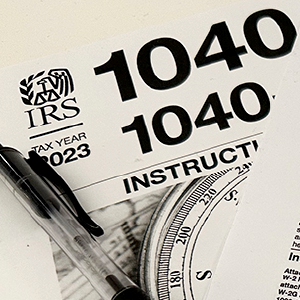First NH electric bills with Community Power Coalition rates arrive in Hanover, Lebanon, Enfield and Plainfield this month
| Published: 06-17-2023 12:48 PM |
HANOVER — New statistics indicate that few customers are straying from community power initiatives, which allow participating New Hampshire municipalities to source electricity for themselves instead of relying on one of the state’s utilities.
Community power launched in May in 10 communities across the state, including Enfield, Hanover, Lebanon and Plainfield.
The municipalities are organized into the Community Power Coalition of New Hampshire, or CPCNH, a nonprofit based in Lebanon. Unless they choose to opt out, residential customers and most businesses in those communities were automatically enrolled in CPCNH’s community power aggregation plan.
In the participating Upper Valley communities, opt-outs were negligible. Only about 1% of electricity-users opted out in Plainfield and Enfield — the largest withdrawals of the four municipalities — according to a May 30 report from CPCNH.
The May billing period — the first for community power in New Hampshire — will be reported on the June electric bill, so community power customers will see the effect of their new CPCNH rates for the first time on bills delivered this month.
CPCNH also offers options for customers who want more renewable energy supplied to their home. Customers can opt up to a green plans, or back down to the base rate, at any time.
Meanwhile, Liberty Utilities is seeking permission from the New Hampshire Public Utilities Commission, or the PUC, to raise its electric distribution rates, which factor into its customers’ monthly bills.
Those using 650 kilowatt hours per month, which is about average for a homeowner, would pay an increase of $13.76, or about 6%, as compared to the current distribution rates, according to a May 26 letter from the utility to its customers. Liberty’s coverage area includes Cornish, Enfield, Grafton, Hanover, Lebanon, Lyme and Plainfield.
Article continues after...
Yesterday's Most Read Articles
 Neighboring landowner objection stalls Steeplegate redevelopment approval
Neighboring landowner objection stalls Steeplegate redevelopment approval
 Women at work on Warren: New combined salon, spa, DIY and retail space opens in former Peter’s Images location
Women at work on Warren: New combined salon, spa, DIY and retail space opens in former Peter’s Images location
 As N.H. coal-fired plants shift to solar, offshore wind beckons
As N.H. coal-fired plants shift to solar, offshore wind beckons
 In Franklin, a Hometown Hero remains busy, 12 years after retiring from the U.S. Postal Service
In Franklin, a Hometown Hero remains busy, 12 years after retiring from the U.S. Postal Service
 For some older Jewish professors at Dartmouth and UNH, opposition to campus arrests feels personal
For some older Jewish professors at Dartmouth and UNH, opposition to campus arrests feels personal
 ‘Paradise Paradox’ – mental-health issues amid the wonders of a ski town
‘Paradise Paradox’ – mental-health issues amid the wonders of a ski town
New Hampshire’s regulated utilities — Eversource, Liberty, Unitil and the New Hampshire Electric Co-op — have a historic hold on electrical supply in the state. The four utilities also “deliver” the power in their service areas on the poles and transmission wires that they own.
But last month’s rollout of community power programs, providing customers with more leeway in how they procure their electricity, has disrupted the energy landscape of the Granite State.
Still, “distribution rates pay for the poles and wires and are not bypassable,” New Hampshire’s Consumer Advocate, Don Kreis, wrote in an email to the Valley News. “Essentially, Liberty remains the monopoly provider of distribution service within its franchise territory.”
Kreis pointed to poor stock performance by Liberty’s parent company, the Ontario, Canada-based Algonquin Power & Utilities, as a possible explanation for the utility’s effort to claw back some cash. “Maximizing return on shareholder investment, and thereby pleasing investors who reward the company by bidding up its share price, is really the only reason an investor-owned utility exists,” he wrote.
In a testimony to the PUC last month, Liberty Utilities President Neil Proudman argued for the distribution rate increase on the grounds that “our present base rates are no longer sufficient to enable the company to continue furnishing adequate, efficient and reasonable service.”
The increase also reflects “the declining returns, which are largely due to investments the company has made in its distribution system,” as well as pressure from inflation, Proudman added.
Liberty customers can file written comments to the PUC regarding Liberty’s requested distribution rate increase by emailing them to puc@puc.nh.gov and including “DE 23-039” in the subject line.







 Adam Montgomery sentenced to minimum 56 years on murder charges in young daughter’s death
Adam Montgomery sentenced to minimum 56 years on murder charges in young daughter’s death Following budget cut, Pembroke revisits future of elementary school re-build
Following budget cut, Pembroke revisits future of elementary school re-build Granite Geek: Free government software for taxes – what could go wrong? (Not much, as it turns out)
Granite Geek: Free government software for taxes – what could go wrong? (Not much, as it turns out)
